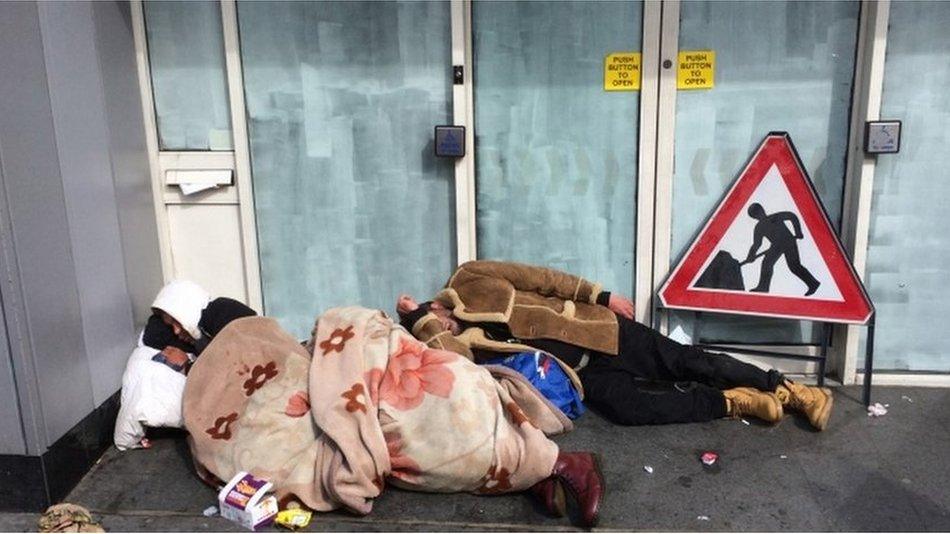Rough sleeping up 30% as 3,500 face night on streets
- Published
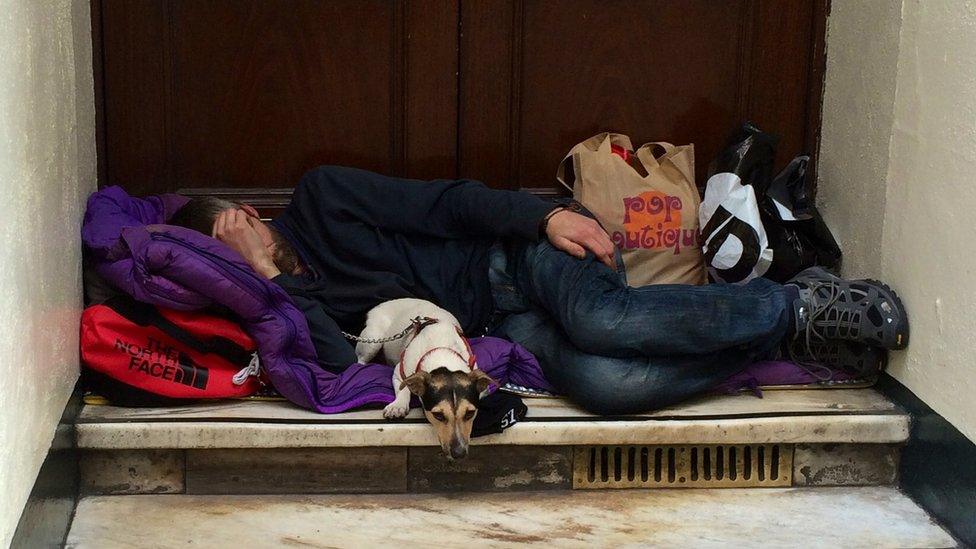
Four in 10 rough sleepers suffer from a mental health problem
More than 3,500 people were sleeping rough on England's streets on any one night last year, 30% more than in 2014.
More than a quarter of England's rough sleepers are in London.
The increase comes as London Mayor Boris Johnson, who promised to eradicate rough sleeping in the capital by 2012, is about to reach the end of his term in power.
The annual government figures do not include people in hostels or shelters, squatters or travellers.
They are usually considered to be homeless, whereas rough sleepers are outside at night without shelter.
Ninety-seven people were sleeping on the streets in Bristol, 78 in Brighton and 70 in Manchester.
Most of London's rough sleepers were in Westminster, with 55 in the borough of Brent and 48 in the City, according to the Department for Communities and Local Government.
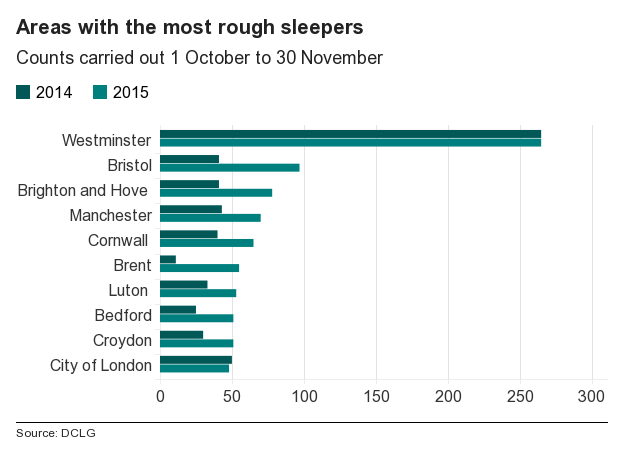
A spokeswoman for the mayor of London said: "Any person sleeping rough in London is a cause for concern and something the mayor takes extremely seriously. He invests £9m a year in vital services that help rough sleepers off the streets, including specialist services for non-UK nationals sleeping rough - a group that has significantly increased in recent years.
"Through the success of his flagship No Second Night Out scheme, the majority of those who arrive on the streets spend only one night sleeping rough."
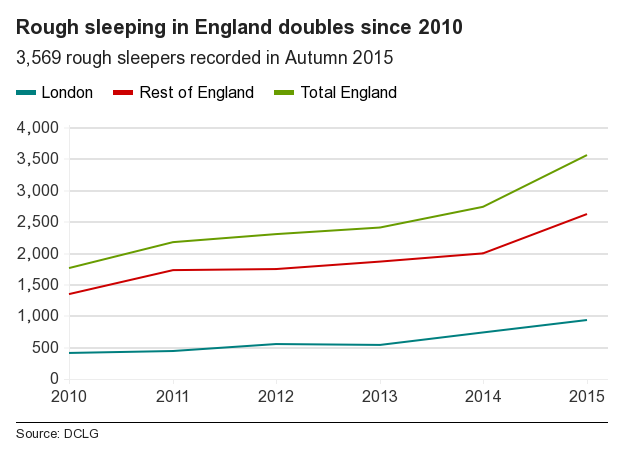
'Scandal'
Research by St Mungo's, the homelessness charity, found four in 10 rough sleepers had mental health problems, 41% needed help with alcohol dependency and 31% with drug abuse.
Howard Sinclair, chief executive of St Mungo's, called the rise in rough sleeping "shocking and unprecedented".
"It's nothing short of a scandal that people with mental health problems are sleeping rough."
The Department for Communities and Local Government said it had increased funding to tackle homelessness by £139m over the next four years.
Rough sleeping rises 30%
3,569
rough sleepers in England in Autumn 2015
2,744
the year before
-
27% increase in a year in London
-
97 rough sleepers in Bristol, more than double the previous year
-
£139m fund to tackle homelessness over the next four years

Claire's story
Claire ran away from home in Peterhead in Scotland to London during the 1980s because of family problems. She was 13. She initially stayed in a hostel in Victoria but ended up sleeping rough around the Strand for about two decades, with several stints in Holloway prison.
"I made a few hoax bomb threats. I'm not proud of it. After the years in prison I became institutionalised. It was a way of getting off the streets - at least in prison you've got a bed.
"The winters are definitely the worst, when it's raining.
"Me and hostels just don't get on very well. But back then the homeless were like a close-knit family, we'd share sleeping bags. Not like now."
Eventually she found a church-run hostel that suited her and got help from St Mungo's.
Claire now has a temporary place to live - a small flat in Catford. "It's the first flat I've had on my own, it's a bit strange and scary," she said. She helps with laundry at St Mungo's. It's unpaid, but she hopes to work for the charity one day.

'Moral responsibility'
Labour's mayoral candidate, Sadiq Khan, said there was a "moral responsibility" to tackle the problem.
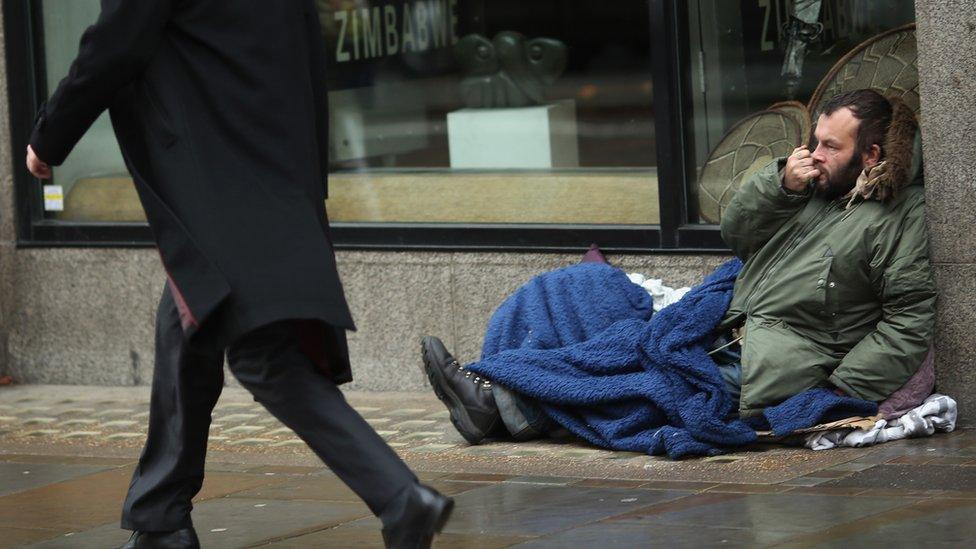
Many of London's rough sleepers are around the Strand
"If elected mayor I will establish a rough sleepers initiative - a new London-wide taskforce with local authorities, experts and charities."
Zac Goldsmith, the Conservative candidate for mayor of London, said he would take responsibility for allocating homeless people to local authorities. "That's important because London has a large transient population that no one borough is technically responsible for," said his spokesman.
"No Second Night Out has been a real success, but we must do better, and the No First Night Out pilot has shown we can," said Mr Goldsmith.
- Published31 December 2015
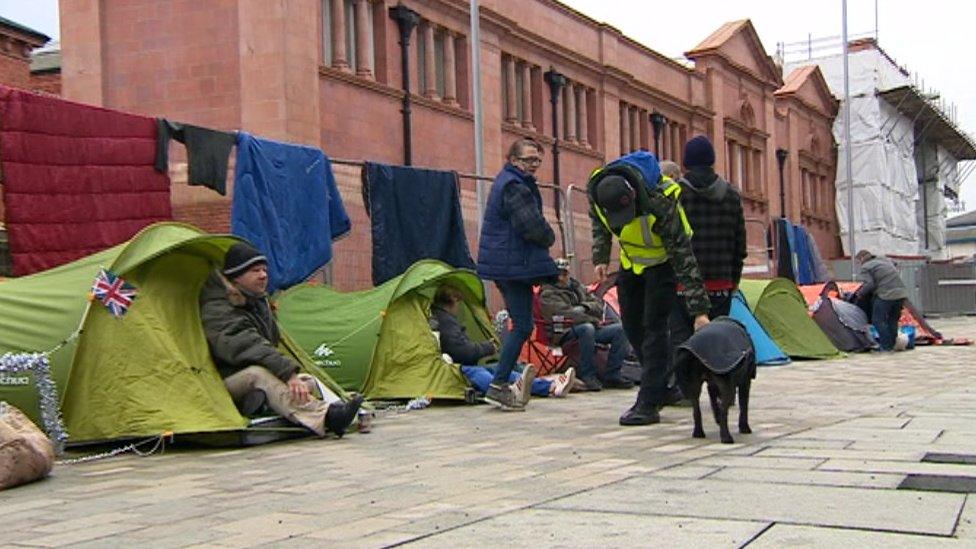
- Published18 June 2015
